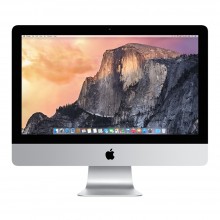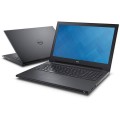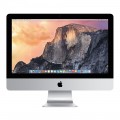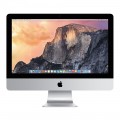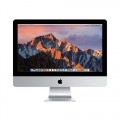 Loading... Please wait...
Loading... Please wait...Categories
Our Newsletter
iMac 21.5" - DC Ci5
Price:
Rs.135,000.00
SKU:
MK142ZA/A
Brand:
Weight:
2.50 LBS
Availability:
Yes
Shipping:
Calculated at checkout
Product Description
ITShop offers you the best macbooks in Pakistan.
Hard Drive Capacity
1000 gigabytes
Hard Drive Type Traditional, mechanical hard disk drives are the most common type of storage because they're relatively inexpensive and offer huge capacities. However, they also generate both noise and heat. Solid state drives, also known as SSDs, are many times faster than hard disk drives and have no moving parts to wear out, but typically offer far less capacity.
Solid State Drive
Processor Speed The clock speed of the processor, measured in hertz (Hz), is defined as the number of operations the central processing unit (CPU) can carry out in a single second. Working in combination with system memory, the power of the processor determines the complexity of software you can run, how many programs you can have open at the same time, and how fast those programs will run.
3.0 gigahertz
Processor Model Your computer's processor is like its brain. Working in combination with system memory, the power of the processor determines the complexity of software you can run, how many programs you can have open at the same time, and how fast those programs will run. Most computers feature an Intel or AMD processor.
Intel 7th Generation Core i5
System Memory (RAM) Random-access memory, or RAM, is important because it helps your processor tackle multiple tasks at once. A minimum of 2GB is required for basic computing, but 6GB or more is recommended if you're into graphics and advanced photo or video editing.
8 gigabytes
Graphics Card
AMD Radeon Pro 555
Screen Resolution Higher resolution equals better picture quality. Screens come in a range of resolutions (measured in pixels, horizontal x vertical). The higher the resolution the greater the picture quality.
3840 x 2560 (UHD)
Screen Size Size of the screen, in inches, measured diagonally from corner to corner.
21.5 inches
Find Similar Products by Tag
Islamabad Lahore Karachi itshop.pk itshop Samsung Multan apple Laptop DISPLAY iPhone Android peshawar Queta deraismailkhan sukker hyderabad it-shop SSD Macbook best tech unboxing gadgets review 2017 mac macbook air (computer) new 2016 pro mac os (operating system) macbook air rose gold pink air macbook pro macintosh (computer) tld look new macbook pro airpods iphone 7 plus iphone 7 macbook pro dummy macbook pro clone external techfastlunch&dinner Price in pakistan rawalpindi
Customers Who Viewed This Product Also Viewed
-
Rs.53,500.00

-
Rs.3,250.00

-
Rs.345,000.00

-
Rs.234,000.00









